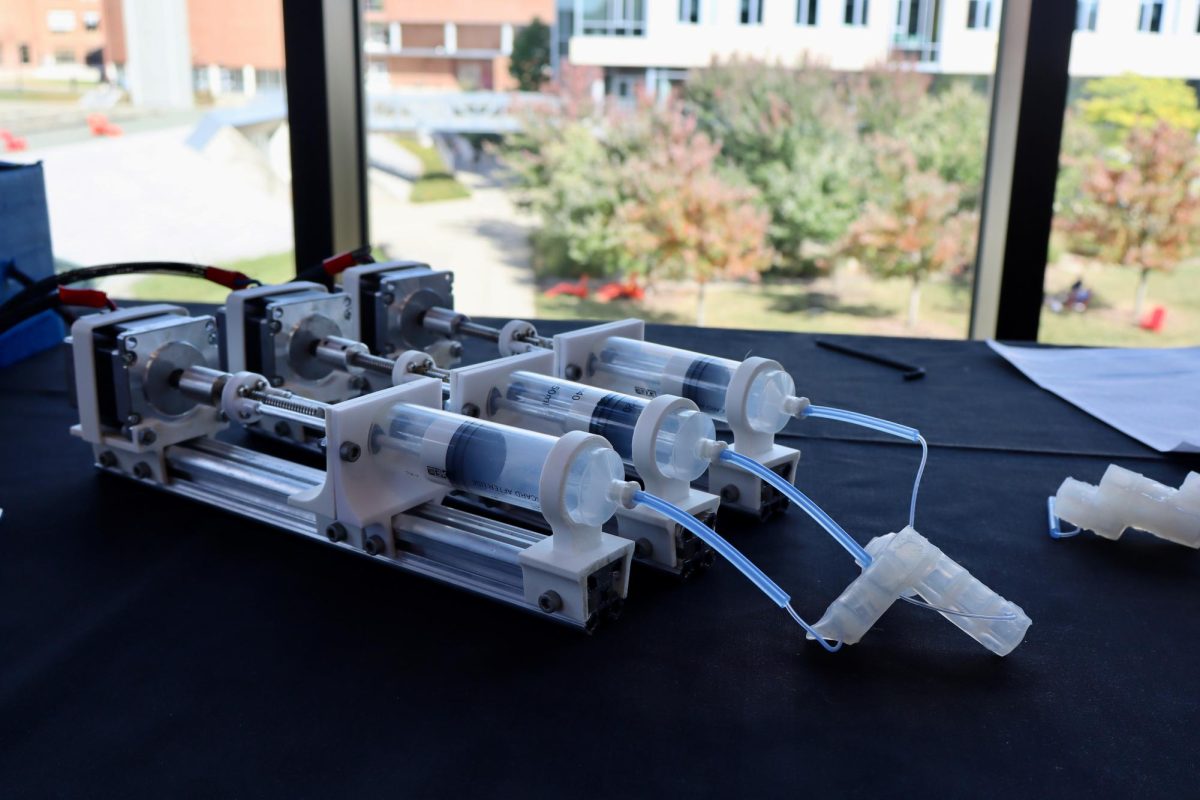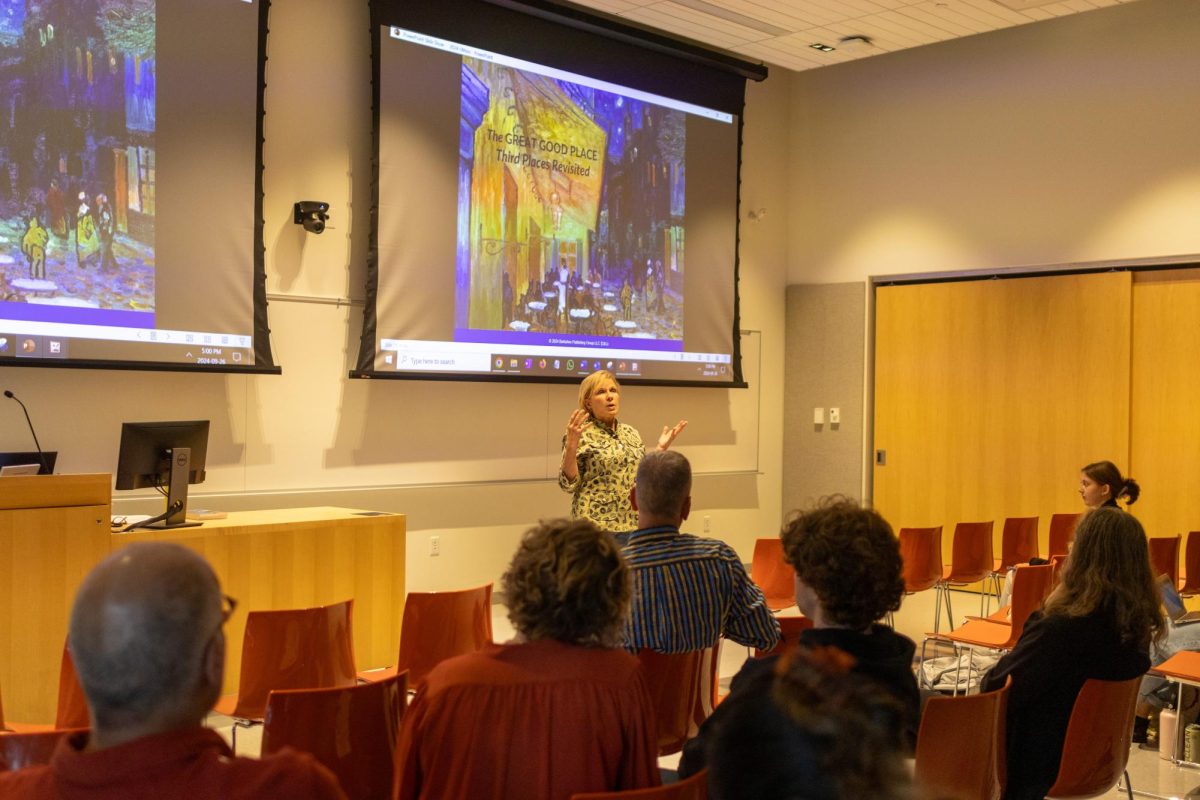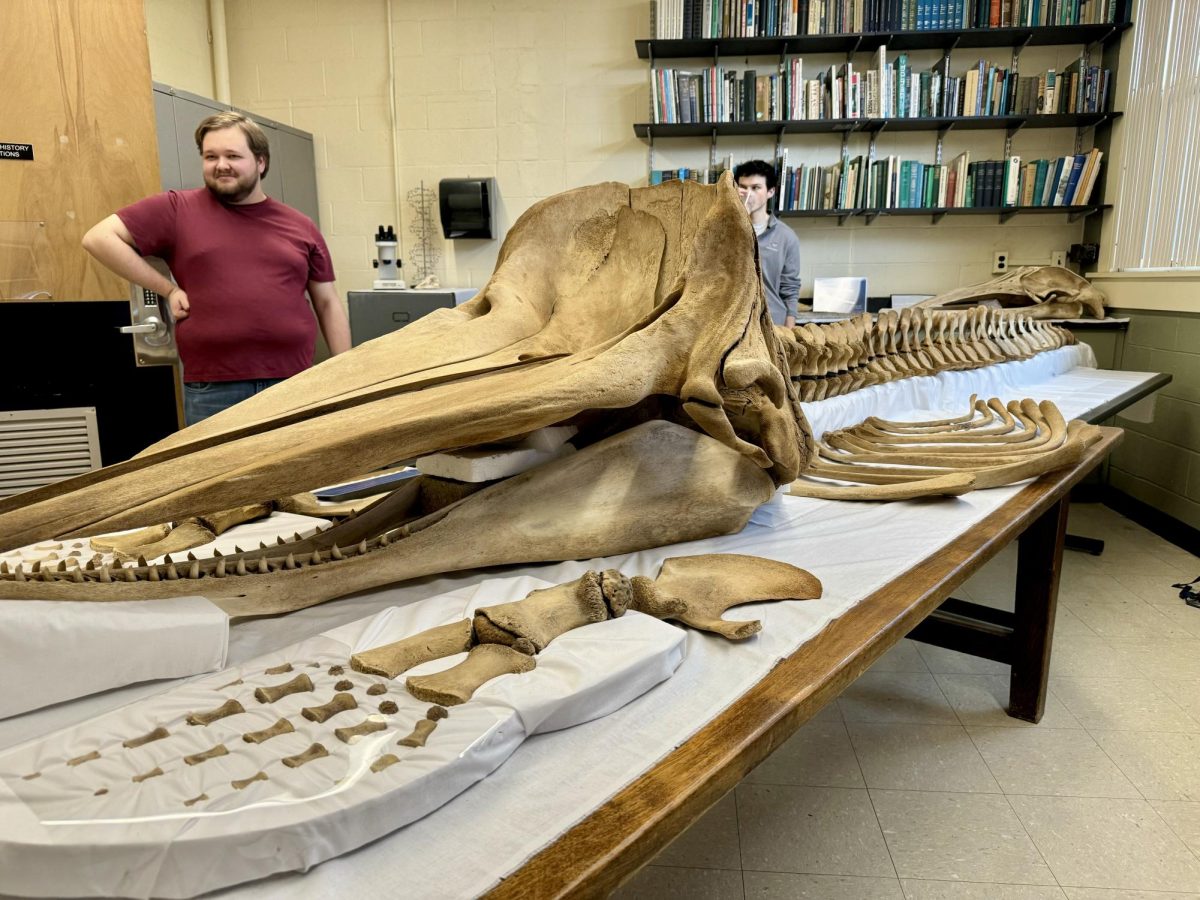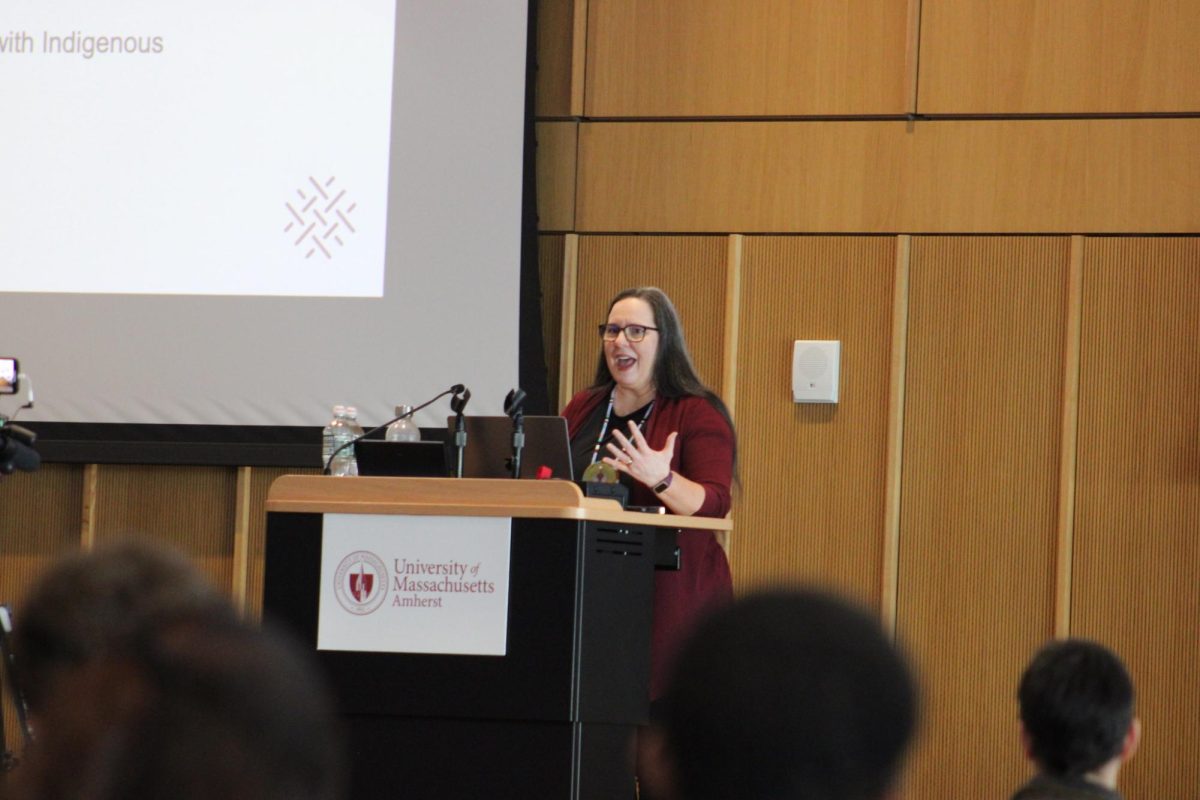
University of Massachusetts police officers greeted more than 50 demonstrators from the UMass Fossil Fuel Divestment Campaign outside of the Mullins Center Wednesday morning, blocking their access to the 9 a.m. Board of Trustees meeting at which Divest members Allison Rigney and Kristie Herman were scheduled to speak.
“It is a public meeting, but it is a private building,” one of the officers told demonstrators.
Divest UMass, a student organization campaigning for the University to end its investment in the fossil fuel industry, has been active on campus for two years. This meeting marked the first time Divest UMass has been granted the opportunity to speak to the Board of Trustees.
“Our task for this meeting is that we get a formal vote on divestment from the Board of Trustees at their April 8 meeting,” said Varshini Prakash, a Divest UMass leader. “If we don’t get that vote, we are going to let the trustees know that we are willing to leverage the power we have built to get this up.”
Eventually, all demonstrators were allowed into the building, but only 12 could enter the boardroom, already packed with representatives from the UMass Unions, due to fire code restrictions.
Rigney, a sophomore, and Herman, a junior, opened their speech with disappointment at the lack of student access to the public meeting.
“This is supposed to be a public meeting and it is a meeting where discussions and decisions are made that directly affect students, and we think that students should not only be welcome to attend these meetings, they should be encouraged,” Rigney said. “As many students that want to be here should be able to be here.”
Rigney and Herman stressed the urgency of climate change and the need for UMass to stop investing its endowment in the fossil fuel industry during their presentation. They said that more than 400 student-led campaigns have started across the nation in the past two years, as well as hundreds internationally. Ten college campuses across the nation have already divested their endowments from fossil fuel corporations.
Chairman Henry Thomas, the facilitator of the meeting, responded, saying that Divest UMass’ concerns were noted, but that the board would not reach a decision at that time. He did address the issue of meeting accessibility, however.
“We think that it is very important that all students have the opportunity to participate in the democratic process. We should not do anything to interfere with that right,” Thomas said. “If you were given the impression that you were being discouraged from coming, then I apologize for that.”
Chairwoman Margaret Xifaras of the Task for Online Education, voiced her support for Divest after the two spoke, as well.
UMass President Robert Caret made a statement after Divest left the meeting, saying that the University will continue looking at fossil fuel divestment, but it is not as easy as it sounds. Divest sent letters to all board members prior to the meeting asking for their support, but have received nothing in response.
Both Chairman Thomas and the Divest representatives expressed their solidarity for the Michael Brown and Eric Garner no-indictment cases during their opening remarks.
“Climate change is a racial and an economic justice issue,” Herman said. “We resonate strongly with the chants in the streets of ‘I can’t breathe.’ While Eric Garner died in a police chokehold, people in communities in Holyoke, Springfield, the Fall River areas are also gasping for air due to pollution.”
Prakash gave a short speech and led chants in the Student Union before the meeting, building energy for the rainy walk to the Mullins Center. She said that powerful, non-disruptive action was essential to their demonstration.
“We started from a fledgling campaign of just three students to having over 50 members,” she said. “We have been working for two years to get this meeting and we have been given a whopping three minutes to speak, so we are going to make sure they know that’s not enough.”
UMass does not officially disclose how much money it invests in fossil fuels, as it does not disclose where it invests any of its endowments. The lack of a transparent endowment has earned the University an annual score of just .25/16.75 in the “investments” category of the STARS Report, a ratings tool that ranks schools based on sustainability practices.
“Our purpose for being here is to show the school that there is a large portion of the student body who care about what our school invests in,” said Evan Hanlon, a Divest member. “It doesn’t make any sense for us to be an environmentally-friendly campus but still support, like, Exxon Mobil.”
The Board of Trustees formed a Socially Responsible Investment Advisory Committee last year, which is supposed to review and advise the investment committee toward environmentally responsible investments. The committee has met only once since its formation.
Representatives from UMass Boston’s divest campaign and 350 Massachusetts, a volunteer-led statewide climate action network, were present at the meeting as well. Darcy Dumont of 350 Massachusetts said she was impressed with how well organized the UMass divestment campaign was.
“We aren’t talking about years here, we are talking about days,” Divest Media Spokesperson Carolyn Black said. “And it is only getting worse.”
A video of Rigney and Herman’s presentation is available here.
Sarah Robertson can be reached at [email protected] and followed on Twitter @srobertson_.



















Move Up • Dec 15, 2014 at 11:44 am
Isn’t one suppose to maximize returns on an investment? The group should find a sustainable company to replace our shares in fossil fuel funds, rather than yell about it. Slacktivism at its finest.
J Burbank • Dec 12, 2014 at 12:36 pm
Great job Divest UMass. Keep up the protest.